Did Russia Hack the Election? 7 Times The CIA Influenced Foreign Politics Around The World
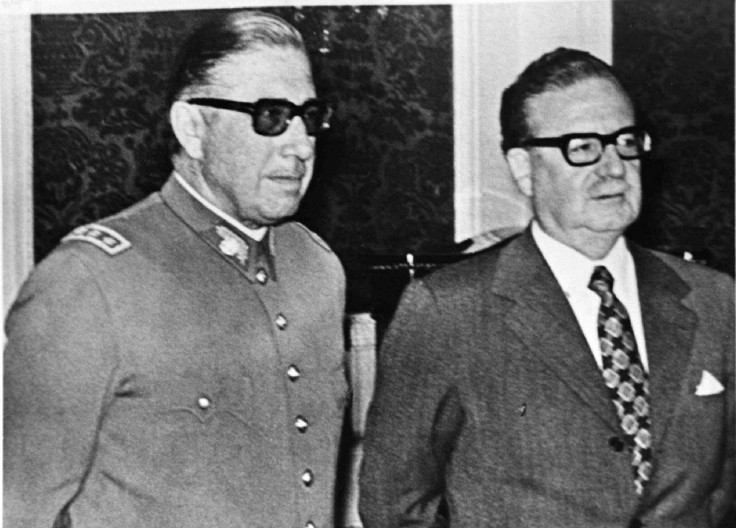
Colorado Sen. Cory Gardner is the latest Republican senator to support a special Congressional committee to investigate allegations of Russian interference in the U.S. presidential election, he announced Monday. The committee would also look into other cyber security threats against the nation.
Following conclusions by both the FBI and CIA stating that Russia was likely behind the hacks targeting Democrats and their emails, which were made public by whistleblower organization Wikileaks, Gardner joined other lawmakers in condemning Russia for apparently trying to influence the election. Arizona Sen. John McCain also accused Moscow of attempting to "destroy democracy" during an interview with CNN Sunday.
"This is the sign of a possible unraveling of the world order that was established after World War Two, which has made one of the most peaceful periods in the history of the world. We're starting to see the strains and the unraveling of it, and that is because of the absolute failure of American leadership," McCain said.
Former Secretary of State Hillary Clinton, whose presidential campaign was apparently Russia's target, and President Barack Obama have also warned of the dangers that Moscow-sponsored hacking could present. Washington has long had its hand in a history of foreign coups, revolutions and invasions, especially most of which occurred in the post-World War Two era McCain praised as a time of stability.
Here are just a few examples of the U.S.' involvement in foreign governments around the world.
1. Russian Civil War (1918-1920)
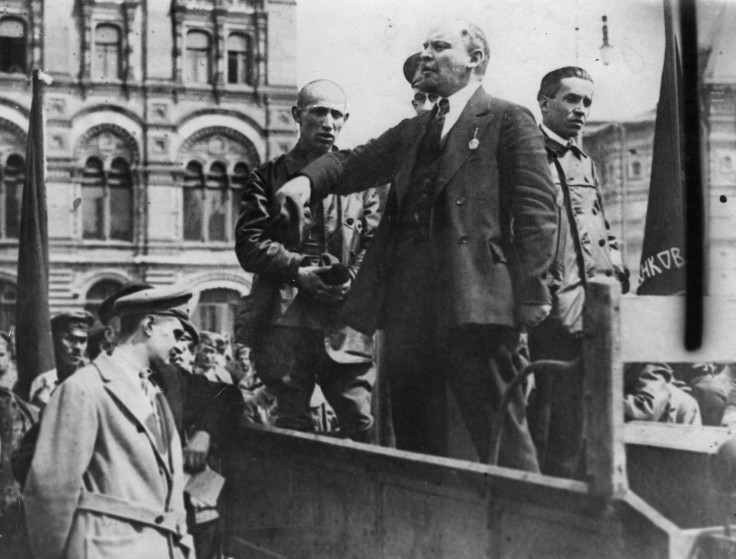
One of the U.S.' first major attempts to influence a foreign government occurred directly after World War I. Russia entered the war as an empire within the Allied Powers. The U.S. did not get involved in the war until Russia's withdrawal, which occurred as the result of a series of internal revolutions, which saw the Bolsheviks, or Red communists, rise to power. Once on top, the Bolsheviks faced opposition from other leftists and right-wing armies, which banded together to try and take down Bolshevik leader Vladimir Lenin.
The Bolsheviks had broken off all former "imperial" treaties, seized foreign property and encouraged the spread of communism, leading Allied countries including the U.S. to sponsor the so-called "White" forces against the Red Army. The communists ultimately won and remained firmly in power for the next 70 years under the banner of the Soviet Union. The U.S.' decision to back Moscow's early opponents was a primary factor in the rift in relations between the two superpowers.
2. Italy, 1948 General Election
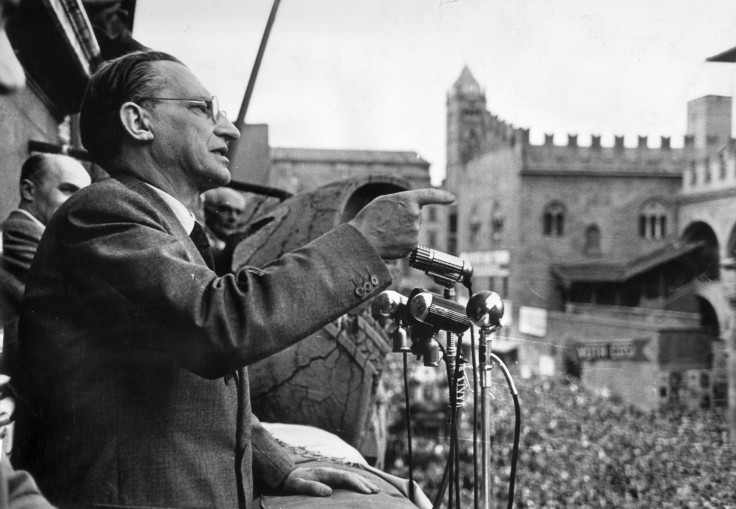
The Central Intelligence Agency, or CIA, was formed in 1947 in the wake of World War Two. While the threat of Nazism had dissipated, the "specter" of communism took its place as the U.S.' great rival in Europe. Moscow had secured communist satellite states throughout Eastern Europe, comprising the Soviet Union and its allies, and Washington sought to fortify friendly nations in the West. During the 1948 Italian general election, the CIA, headed by future U.S. President Harry Truman, covertly reached out to Christian Democrat Alcide de Gasperi and offered financial and political support against his socialist opponents. Gasperi won the election with 48 percent of the vote thanks and the CIA repeated this strategy in Italian elections for the next 24 years.
"We had bags of money that we delivered to selected politicians, to defray their political expenses, their campaign expenses, for posters, for pamphlets," F. Mark Wyatt, a late former CIA operative involved in the operation, told CNN in a 1995 interview.
3. Iran, 1953 Overthrow Of Prime Minister Mohammed Mossadegh
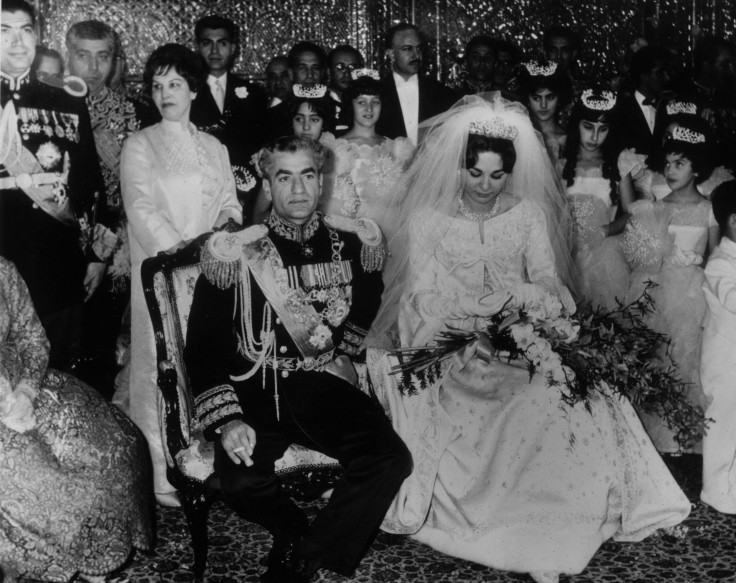
Shortly after its inception, the Cold War between Washington and Moscow became the CIA's primary concern not just in Europe, but around the world. The CIA only public admitted in 2013 its role in the overthrow of Iranian Prime Minister Mohammad Mossadegh, making it the earliest foreign coup officially claimed by the agency.
Mossadegh was a Western-educated, politically influential politician in Iran who successfully championed efforts to nationalize the country's oil industry. The move angered British companies who operated in Iran and the CIA decided to execute an operation known as TPAJAX or Operation Ajax, through which the CIA had Mossadegh placed under house arrest where he remained until his death in 1967. The U.S. and the U.K. also sponsored Mohammed Reza Pahlavi, Shah of Iran. Pahlavi maintained a formidable security force and his harsh resistance eventually turned against him and his allies in the West when he was overthrown during the 1979 Iranian Revolution that installed the country's current government.
"In 1953, the United States played a significant role in orchestrating the overthrow of Iran's popular Prime Minister, Mohammad Mosaddegh. The Eisenhower Administration believed its actions were justified for strategic reasons; but the coup was clearly a setback for Iran's political development. And it is easy to see now why many Iranians continue to resent this intervention by America in their internal affairs," former Secretary of State Madelaine Albright said in a 2000 speech.
4. Congo, 1960 Overthrow of President Patrice Lumumba
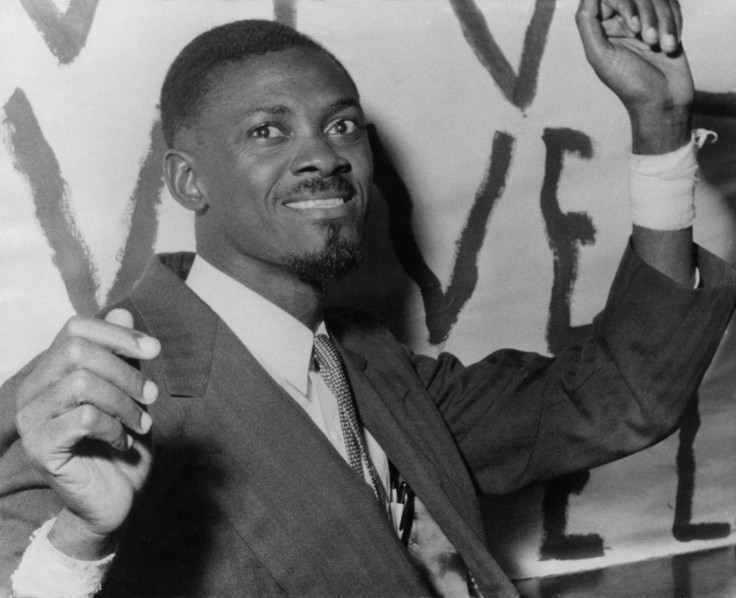
In the mid-20th century, a number of so-called third world countries experienced a wave of independence movements. Patrice Lumumba was an influential figure calling for Congolese independence from its colonist Belgium. After his release from prison, he attended the talks that ultimately freed the country.
Lumumba became the country's first democratically elected prime minister, yet instability followed when Belgium intervened amid reports of whites being targeted and to protect its interests such as its profitable mineral industry in the Congo. As the Belgian occupied the nation, Lumumba appealed to the U.N., which sent peacekeeping troops and requested Belgium to withdraw and halt support for allied militias. Belgium refused and instead sponsored separatist republics containing the country's vast mineral reserves. The U.S. sided with Belgium, leaving Lumumba to turn to the Soviets for assistance. In response, the U.S. and Belgium conspired against the Congolese prime minister leading to his capture and execution at the hands of Congolese and Belgian mercenaries in 1961. He was replaced by pro-Western military leader Joseph Mobutu, who led the country until 1997.
5. Cuba, 1961 Bay Of Pigs Invasion
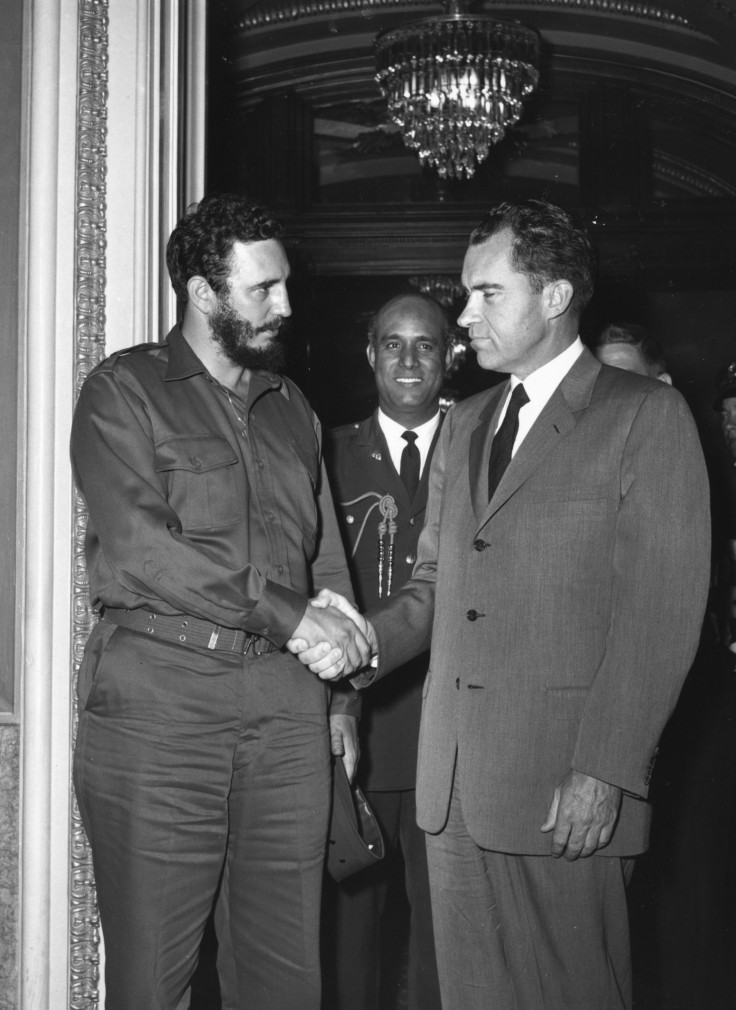
The CIA has a long, tumultuous relationship with late former Cuban President Fidel Castro, who overthrew U.S. ally Fulgencio Batista and forged close ties with Washington's Cold War rival Moscow.
The U.S. initially supported Castro's revolutionary cause before it took a socialist undertone. Once Castro enacted economic reforms that nationalized U.S. properties, the short-lived alliance unraveled and President Dwight D. Eisenhower imposed harsh trade sanctions against Havana, which exist to this day. Castro responded by becoming closer to Moscow and its Soviet-style administration.
The U.S. trained and equipped Cuban rebels for the 1961 Bay of Pigs invasion, but the attack was thwarted by Cuban forces. Defense officials then drafted Operation Northwoods, an ultimately rejected false flag operation that proposed orchestrating a terrorist attack in the U.S. and blaming the Castro government in order to incite war. Many have tried to record the numerous CIA-backed plots to kill the Cuban leader, with some putting the number as high as 638 attempts on Castro's life. Some of the more cartoonish proposals allegedly included exploding cigars and employing one of Castro's former lovers who could not bring herself to poison the Cuban leader.
Around the period when U.S. relations with Cuba were at their tensest point, the CIA was able to successfully sponsor a coup in another Caribbean nation, providing "material support" for the assassin of Rafael Trujillo Dominican Republic.
6 - Indonesia, 1965 Anti-Communist Purges
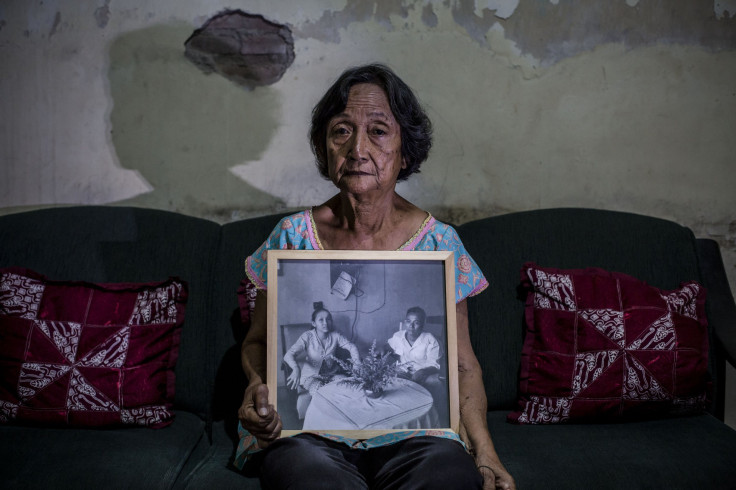
In 1965, six senior Indonesian army generals were kidnapped and killed by Indonesian military officials claiming to be from the 30 September Movement. The Indonesian government branded it a coup attempt and blamed it on the communists. The armed forces, led by General Suharto, began to systematically imprison, torture and kill anyone suspected of having communist ties. President Sukarno demanded order, but was eventually overthrown by Suharto. Officials within the CIA have admitted to supplying names of communists and providing support for the purges that killed over 400,000 people.
"It really was a big help to the army. They probably killed a lot of people, and I probably have a lot of blood on my hands, but that's not all bad. There's a time when you have to strike hard at a decisive moment," Robert J. Martens, a former member of the U.S. Embassy in Jakarta's political section and later State Department consultant, told the Washington Post in 1990.
Elsewhere in Southeast Asia, the CIA supported the coup and execution of South Vietnamese leader and ally Ngo Dinh Diem, whose oppression of Buddhists frustrated Washington.
7 - Chile, 1973 Overthrow Of President Salvador Allende
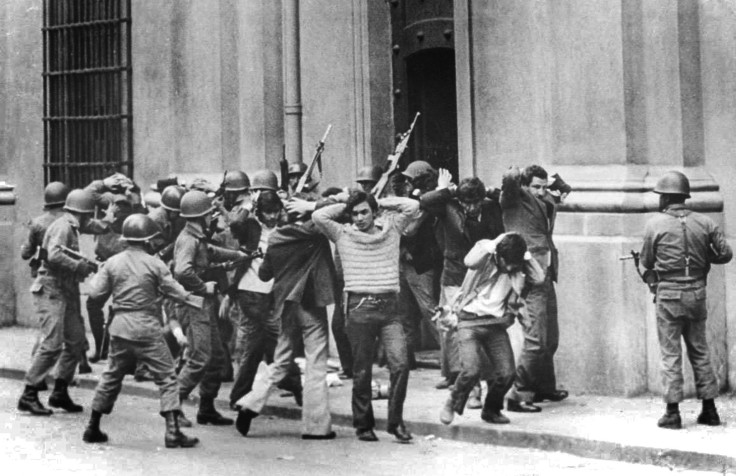
The date Sept. 11th has a very different meaning for many Chileans, especially those that remember the political crisis that followed the military coup against socialist President Salvador Allende and the rise of right-wing military leader Augusto Pinochet.
Allende was elected president in 1970, despite CIA-backed attempts to disrupt his success. It continued its attempts to sabotage the Chilean economy and Allende's socialist policies. In 1973, General Pinochet led a military assault on the presidential palace, during which Allende allegedly committed suicide. Pinochet took power and began a campaign of forced disappearances against leftists, with over 3,000 missing and a further 27,000 affected by human rights violations.
The CIA continued to work with Pinochet and others in the violent Washington-supported campaign of repression against leftist ideology in South America known as Operation Condor that killed up to 60,000 people across Chile, Argentina, Brazil, Bolivia, Paraguay and Uruguay.
Prior to Chile, the CIA sponsored Latin American, anti-communist coups in Guatemala in 1954 and Brazil in 1961.
© Copyright IBTimes 2024. All rights reserved.






















